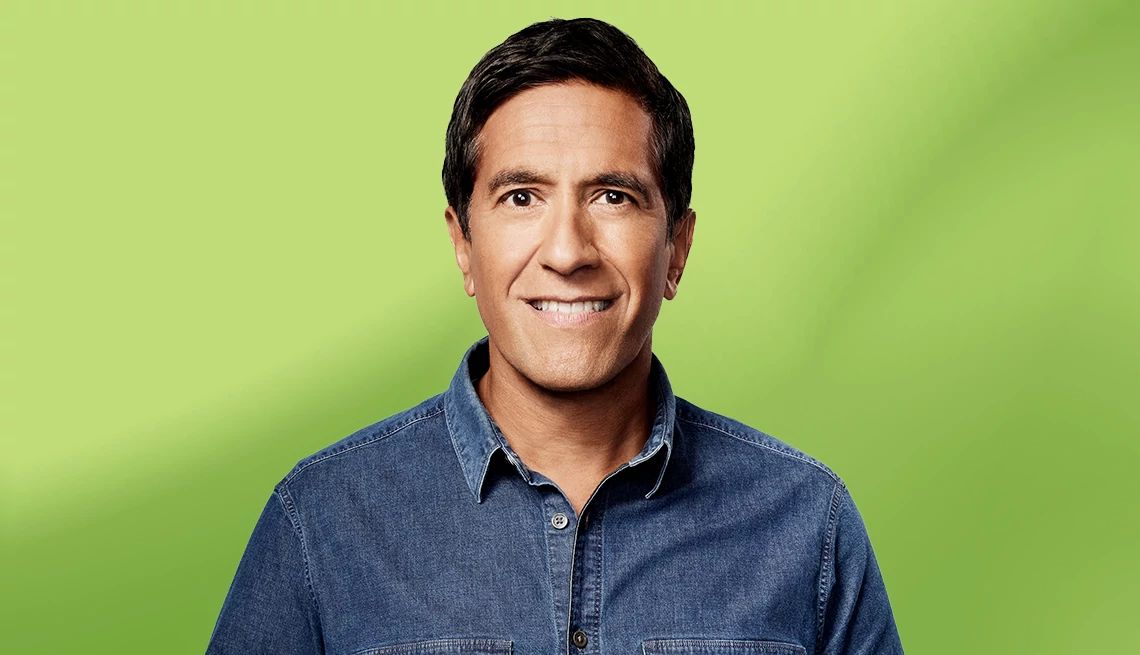AARP Hearing Center


Renowned neurosurgeon Sanjay Gupta, M.D., has just finished a deep dive on Alzheimer’s disease, and he hopes his investigation will provide hope for patients and their families. In The Last Alzheimer’s Patient, airing on CNN July 7 and streaming on Max, Gupta chronicles what he learned while following several Alzheimer’s patients over the course of five years through different treatment regimens, including intensive lifestyle intervention programs. “There were a lot of surprises along the way,” Gupta says. In our interview, he shares some of the promising outcomes he witnessed, and tells AARP how he’s personally been affected by the disease, what he’s doing to keep mentally and physically sharp, and what he wishes he could go back and tell his younger self.
This interview has been edited for length and clarity.
How did you get involved with this documentary?
As a neurosurgeon, I’ve been really interested in this topic for a long time. I started thinking about the documentary several years ago, when I was reading about clinical trials regarding lifestyle changes and prevention. For more than a decade, there had been hardly any progress in the treatment or prevention of Alzheimer’s, but when attending neuroscience meetings, I could tell things were starting to change. Suddenly the scientists who had made this their life’s work had something important to discuss and provide hope. I thought this would be a topic I could uniquely address as a brain surgeon and investigative journalist.
What surprised you the most while making the film?
These were often people who had been told that not much could be offered to them, and they were instructed to get their affairs in order. Now, having visited some of these families five years later, I witnessed not only how they improved, but also how profound the benefits could be. I spent time with the patients, but also their families, who can often provide very personal insights to fill out the bigger picture. Given everything I was witnessing and my own family history, I also decided to do something I had never done before: rigorous and detailed testing of my own brain. Given the challenges of testing for Alzheimer’s, I was surprised to learn how detailed the cognitive testing can be, and the tremendous gains we have made in terms of understanding the true connective tissue between the body and the brain.


Have you been personally affected by a family member with Alzheimer’s?
My grandfather developed Alzheimer’s disease at a relatively young age. He was a gifted storyteller and the life of every party. At first, we thought he was telling jokes we didn’t quite understand, but after a while he would forget the most basic things, including whether or not he had just eaten, bathed or taken his medications. My normally very fun-loving grandfather started to become angry and belligerent, which was the toughest part of the disease for our family. The diagnosis of Alzheimer’s disease was not easy to make at that time, but when he no longer recognized my mom — his eldest daughter — it was fairly clear. Over the years, we watched my mom very closely to see if she might develop any signs or symptoms, but at 82 years old, she is as sharp as ever. Even as a man in my mid-50s, I have been paying more attention to my own cognitive health, convinced I can prevent signs of early cognitive decline — something we didn’t know much about when my grandfather developed the disease in his late 60s.




























































You Might Also Like
Tips for Living a Healthier Life
From how to fuel your body, to what to do before bedtime, we have tips that may help you live and feel better
How to Get Better Sleep
Here are our tips to help you fight those restless, endless nights and get the slumber you need
Keeping Your Memory Sharp
From checking hormone levels and your hearing to how to nourish the brain, we have tips to help your brain health
Recommended for You